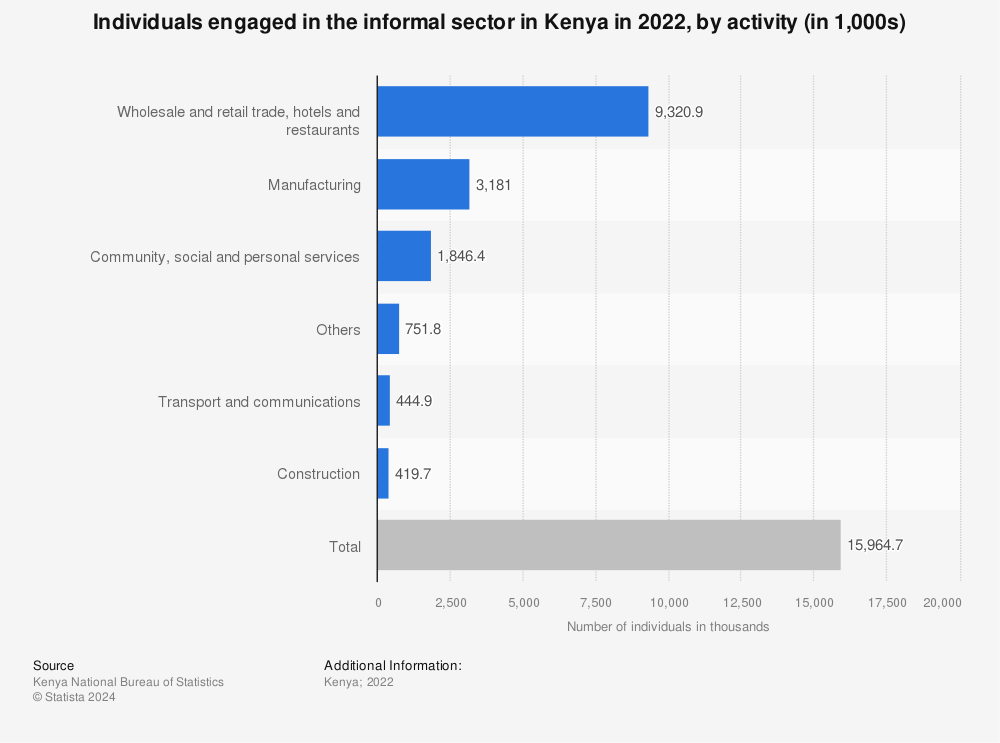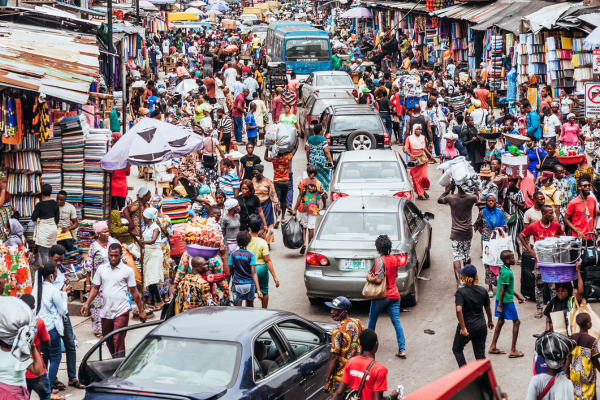The effectiveness of the African Continental Free Trade Area (AfCFTA) hinges on its impact on the informal economy, a crucial part of African economies. Informal cross-border trade represents nearly 40% of trade in sub-Saharan Africa. Informal traders are unsure where they stand in the AfCFTA and have voiced their concerns. Meanwhile, trade unions striving for decent work under the free trade agreement have a position on the informal economy workers and the AfCFTA.

Anthony Kwache, President of Kenya National Alliance of Street Vendors and Informal Traders (KENASVIT), discusses organising informal workers and what it will take to ensure fair cross-border trade.
What are the goals of KENASVIT in organising informal workers, and how does it achieve them?
As the General Secretary of KENASVIT and an informal worker, I see daily how vital the informal economy is. This sector employs 85.8% of the workforce, including many women and young people. These figures are not just numbers. They represent people who rely on informal work to survive. Many people join this industry because of the shortage of formal jobs and show impressive entrepreneurial spirit and resilience. Yet, informal workers generally lack recognition and support, leading to constant struggle.
The Micro and Small Enterprises Act of 2012 governs the informal sector in Kenya. The Act marked a big step in recognising the role of informal workers in our economy. This law, achieved through years of advocacy by sector leaders and parliamentarians, defines micro and small enterprises based on employee count and annual turnover.
KENASVIT unites to strengthen advocacy and bargaining power – to ensure the representation of our voices in development discussions. Our network comprises about 400,000 micro and small enterprises operating in the manufacturing, agri-business, trade, and services sectors. We advocate for a supportive business environment as promised by laws such as the County Government Act (2017).
We push for inclusion, child welfare, occupational health and safety, and social protection. Although KENASVIT members are not in mainstream social security systems, we support ourselves through small, regular contributions via ‘chamas’ (informal cooperative societies). These funds aid personal savings, welfare, and growth. We also encourage members to form informal housing cooperatives. Through our affiliation with StreetNet International, we promote a social solidarity economy.

How can informal workers be better supported to trade efficiently across borders?
Cross-border trade for informal workers in Africa is challenging. For example, despite the promise of free trade and movement under the East Africa Community, opening a shop or hawking in Uganda or Kigali is nearly impossible. While East Africans trade freely in Nairobi and West Africans dominate sectors like electronics and beauty products, we face obstacles selling our goods in many countries. Tax regimes complicate operations, and multi-taxation and visa issues hinder cross-border trade.
To enhance cross-border informal trade under the AfCFTA, we must address market access, open borders, harmonised taxes, and ensure fair treatment for all Africans. We should also consider intra-African currencies for trade instead of relying on the dollar. While the dollar might be necessary for high-level transactions, intra-African currencies could simplify everyday trade. An African passport could facilitate movement by eliminating visa barriers, and a social solidarity economy could sustain the growth of the informal sector.
From backyard industries to small-scale farmers and service providers, informal operators and workers are vital to our economies.
The informal sector, often underestimated, is the future of Africa. From backyard industries to small-scale farmers and service providers, these operators and workers are vital to our economies. However, we need support to build strong organisations that amplify our voices and issues. An organised, robust, and united informal economy is a valuable partner for trade unions and other relevant partners.
What would support from trade unions look like in terms of organising, policy, and advocacy efforts?
Informal workers need assistance to become more involved in policy discussions and campaigns, especially for the inclusion of women, youth, and people with disabilities in trade. We must participate in social dialogue spaces and collective action for access to services like credit, healthcare, and insurance.
Better data collection is essential. Without data, we cannot identify priorities or develop budgets effectively. And training for members on how to apply the law in bargaining would help us handle simple issues independently.
We must advocate for the full implementation of the ILO Recommendation 204 on the transition from the informal to the formal economy.
Formalisation is not just about taxes or licenses; it involves access to infrastructure and support for businesses to thrive. It includes market spaces, utilities, security, social protection, childcare, and occupational health safety. Formalisation should create an environment where informal workers can grow their businesses without struggle.
We must promote more inclusive cities in line with sustainable development goals 5, 8 and 11. We must push for the ratification and implementation of ILO Convention 190 continent-wide.
We need to start a dialogue with trade unions, which have influence and recognition. I urge you to think of the informal economy as a sleeping giant that wants to engage meaningfully. Union engagement is ongoing in West Africa and Southern Africa. KENASVIT will continue to engage with the Central Organisation of Trade Unions (COTU-KE) for mutual benefit. We need serious engagement and a continental plan for the growth of the informal economy.
Kenya, along with other African countries, graduates thousands of students annually. But where are the job opportunities for these graduates? Many end up in the informal economy, where they often thrive. As formal jobs disappear, unions need innovative strategies to organise informal workers and strategic partnerships with informal workers organisations. This mammoth sector requires representation and support. Trade unions, with your history and organisational strength, we ask for your support. Let us work together.
This article is extracted from Kwache’s address to delegates at the ITUC-Africa Congress held in Kenya in 2023.
RELATED ARTICLES
- How do we think about women, youth, and the informal economy in the AfCFTA?
- Perspectives on the AfCFTA from informal economy workers in Ghana
- What the AfCFTA could mean for informal workers in Zambia
- 12 recommendations to ensure decent work for women and youth in AfCFTA
- Trade unions and Trade: A Guide to the AfCFTA Protocol on Trade in Goods







